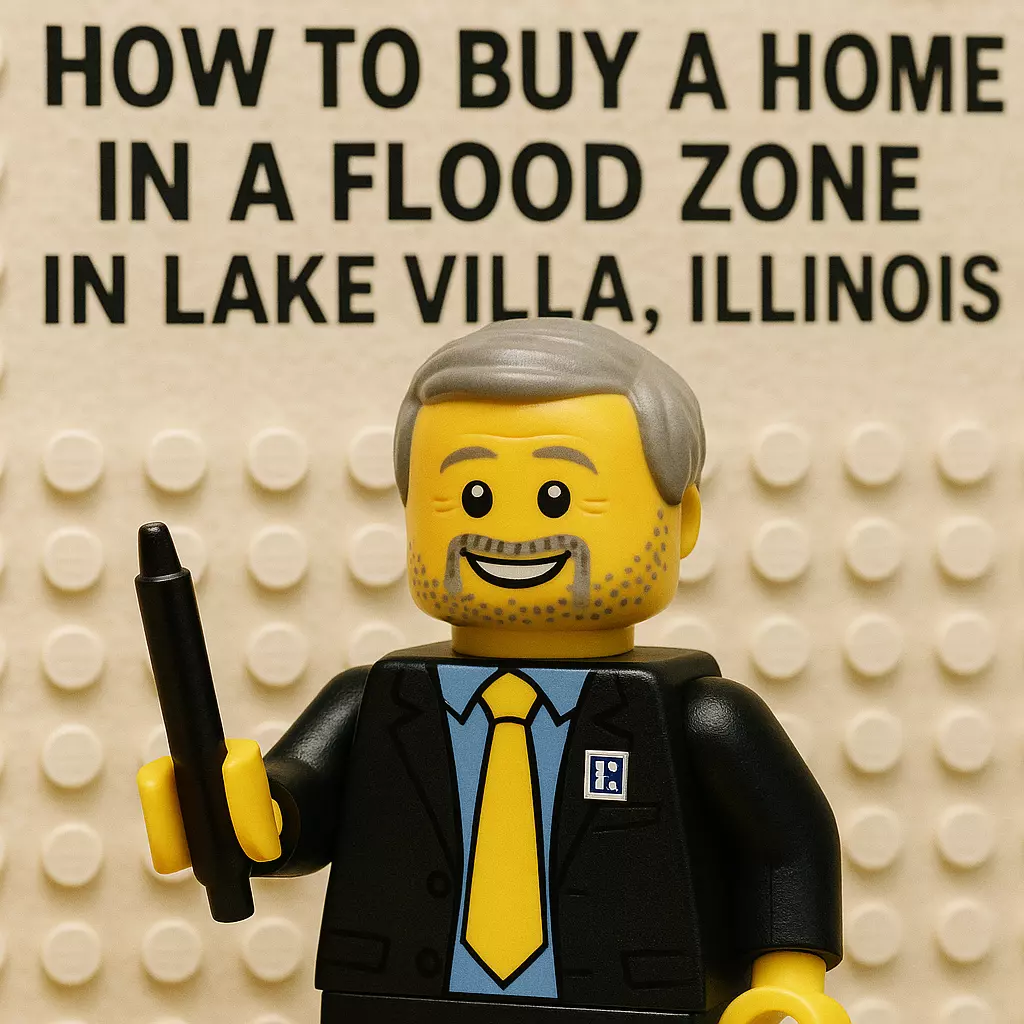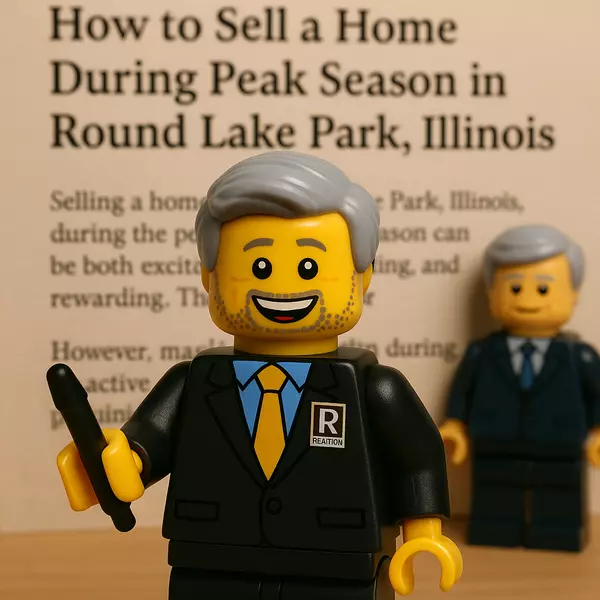How to Buy a Home in a Flood Zone in Lake Villa, Illinois

Buying a home in a flood zone can be a practical decision when handled thoughtfully and with proper understanding of the risks and responsibilities involved. In Lake Villa, Illinois, where scenic lakes, wetlands, and natural waterways are part of the community’s charm, certain properties fall within designated flood zones. Understanding how these designations work, what protections are available, and how to evaluate long-term ownership considerations is essential for any homebuyer. This post provides current and factual insights on how to buy a home in a flood zone while staying compliant with all real estate industry rules and guidelines.
Understanding Flood Zones and How They Are Determined
The Federal Emergency Management Agency (FEMA) maps areas across the United States into flood zones based on the likelihood of flooding. These maps categorize land into areas of high, moderate, or low risk. Properties located in or near bodies of water may fall into Special Flood Hazard Areas (SFHAs), identified as Zones A or AE, where flood insurance is typically required by lenders for federally backed mortgages. Other zones, such as Zones X or B, represent lower-risk areas but could still experience occasional flooding.
Before making an offer on a property, buyers can review FEMA’s Flood Map Service Center online to confirm the zone designation and assess potential exposure. Municipalities like Lake Villa often have local stormwater management offices or building departments that can provide additional data on elevation, drainage improvements, and historical flood information.
Key Considerations When Buying a Home in a Flood Zone
Buying a home in a flood zone requires careful due diligence. Some main considerations include flood insurance, structural elevation, utility placement, and past flood mitigation efforts. Buyers should:
- Review the elevation certificate for the property, which outlines the home’s elevation in relation to the base flood elevation (BFE). Homes built above the BFE generally face reduced risk and lower insurance costs.
- Verify that flood openings, sump pumps, and backflow valves are in place and in good condition.
- Understand that modifications, such as elevating utilities or adding flood vents, can improve protection and reduce future premiums.
- Consult insurance professionals to explore coverage options and estimate potential premiums before finalizing a purchase.
These steps help ensure a buyer fully comprehends the property’s condition and long-term ownership responsibilities.
Get up to date Market Stats for Lake Villa.
Flood Insurance and Financing Considerations
In areas designated as high-risk flood zones, most mortgage lenders will require flood insurance coverage. This insurance is typically available through the National Flood Insurance Program (NFIP) or private insurers. Premiums can vary depending on factors such as the property’s elevation, building design, and flood history. Buyers in lower-risk zones may still choose to carry optional flood insurance for added peace of mind, as heavy rain events can sometimes affect non-designated areas.
Financing a home in a flood zone follows the same mortgage process as any other property, although lenders may request documentation such as the elevation certificate or proof of an active flood insurance policy before closing. Buyers can also look for programs or grants that assist with mitigation improvements or insurance costs. A qualified local real estate professional can guide buyers through lender and insurance requirements while ensuring compliance with all federal and state regulations.
About Lake Villa, Illinois
Lake Villa is a village in Lake County, Illinois, located approximately midway between Chicago and Milwaukee. Known for its abundant lakes, forest preserves, and community parks, Lake Villa offers residents access to both natural beauty and modern suburban living. Nearby destinations such as Chain O’Lakes State Park and the Lake County Forest Preserve trail system provide outdoor recreation opportunities year-round. The community combines residential neighborhoods, small businesses, and easy commuter access via Metra rail service and major roadways.
Due to its geographic features and proximity to lakes, certain parts of Lake Villa include properties designated within flood-prone areas. Buyers considering these homes can work closely with their real estate professional to gather the necessary data and ensure informed decision-making.
Click here for a full overview of Lake Villa.
Evaluating Flood Risk Beyond the Maps
FEMA maps are an essential resource, but buyers should also consider environmental and infrastructure factors that influence local flood behavior. Factors such as soil drainage, municipal stormwater systems, and nearby developments can affect how water flows or accumulates during heavy rain. Many communities, including those in Lake County, have invested in improved retention basins and updated zoning standards to help reduce risk. Reviewing any local improvement plans can help buyers gain additional context.
In addition to physical features, buyers can ask the seller or municipality for documented flood history related to the property. Sellers are typically required to disclose known material facts, including past or recurring water issues. Understanding historical context allows buyers to anticipate maintenance needs and potential costs.
Practical Steps for Buyers and Homeowners
Following a clear process can help buyers in all flood-prone markets make confident, informed decisions. Key steps may include:
- Check FEMA flood maps and municipal resources to confirm flood zone designation.
- Request the property’s elevation certificate during the inspection or contingency period.
- Consult a qualified insurance provider for a quote and coverage explanation.
- Review past improvements, drainage systems, and municipal flood control measures.
- Consider future upgrades, such as foundation reinforcement or landscaping adjustments, that could provide added protection.
Following these steps will help ensure compliance with lending and insurance requirements while safeguarding the investment.
Industry Trends and Broader Market Context
Nationally, many real estate markets are seeing increased attention to climate resilience and infrastructure planning. As weather patterns change, buyers and developers are prioritizing sustainability measures and property protection strategies. In typical market conditions, homes with clear documentation and mitigation improvements can remain attractive to buyers even when located within flood zones. Real estate professionals emphasize transparency, disclosure, and proactive information-sharing as essential parts of modern residential transactions.
Lake Villa’s real estate market, like many suburban communities with natural water features, reflects these national trends. Buyers are seeking properties that balance beauty, accessibility, and safety. Awareness and preparation, combined with accurate data, allow informed decision-making and lasting satisfaction.
Get up to date Market Stats for Lake Villa.
Conclusion: Making an Informed, Confident Purchase
Buying a home in a flood zone in Lake Villa, Illinois, is entirely achievable when approached with accurate knowledge and careful planning. Confirming flood designations, obtaining proper insurance, and understanding both regulatory and environmental factors provide the foundation for a secure purchase. Every property and buyer situation is unique, so working with an experienced local real estate professional is one of the most effective ways to navigate the process successfully and compliantly.
For anyone exploring properties in Lake Villa, staying well-informed and proactive will support confident ownership and peace of mind.
Browse Luxury homes in Lake Villa.
Browse Waterfront properties in Lake Villa.
Browse Foreclosures in Lake Villa.
Great Deals on Price-reduced homes in Lake Villa.
Find Open houses happening in Lake Villa.
Get up to date Market Stats for Lake Villa.
Click here for a full overview of Lake Villa.
Dick Barr is a Managing Broker with The Dick Barr Group at Village Realty, bringing over 20 years of real estate experience to every client relationship. A former elected Lake County Board Member and former Planning and Zoning Commissioner, he is also the recipient of the 2012 Governor’s Hometown Award. Dick is a Certified Residential Real Estate Probate Specialist and Certified Residential Real Estate Divorce Specialist, consistently recognized among the top 1.5% of residential brokers in the United States by RealTrends. Dick is the author of the book, "Beyond the Will: A Comprehensive Guide to Probate Real Estate in Illinois".

Beyond the Will: A Comprehensive Guide to Probate Real Estate in Illinois
Handling real estate after a loved one’s passing is never simple, but it does not have to be overwhelming. In Beyond the Will, Certified Residential Real Estate Probate Specialist Dick Barr provides a clear, compassionate, step-by-step roadmap for navigating probate real estate in Illinois.
Order on AmazonCategories
- All Blogs (205)
- Antioch (16)
- Closing Costs (7)
- Commercial Real Estate (1)
- Community (21)
- Credit (3)
- Divorce (12)
- Estate Sales (5)
- Foreclosure (7)
- Fox Lake (12)
- Grayslake (8)
- Gurnee (9)
- Hainesville (1)
- Homebuyer Tips (73)
- Homeowner Tip (42)
- Ingleside (8)
- Investor Tips (9)
- Lake Villa (20)
- Latest News (20)
- Lindenhurst (19)
- Mortgage Tip (8)
- Probate (44)
- Rehab (1)
- Reverse Mortgage (1)
- Round Lake (17)
- Round Lake Beach (19)
- Round Lake Heights (11)
- Round Lake Park (19)
- Seller Tips (119)
- Service Partners (1)
- Taxes (4)
- Volo (4)
- Wadsworth (7)
Recent Posts











